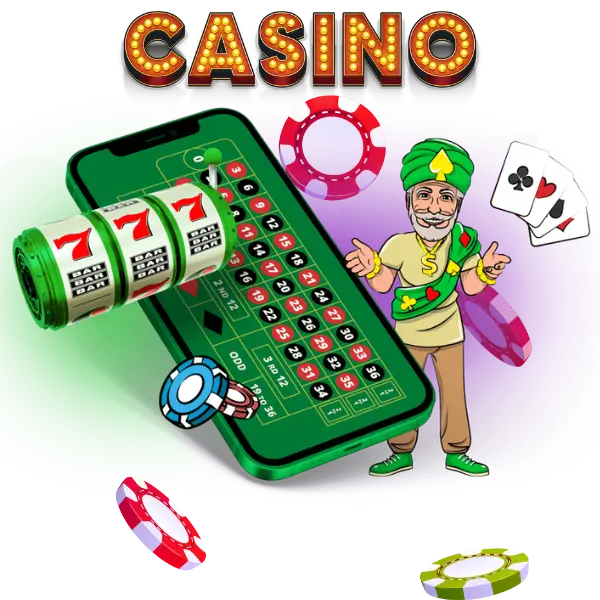Introduction:
As online casino games continue to gain popularity, the need for scalable and high-performance database solutions has become more critical than ever. One of the most effective strategies to achieve this scalability is through database sharding. For casino games development companies, implementing sharding can ensure that their games can handle large volumes of data and concurrent users without compromising on performance. This article delves into the intricacies of database sharding and its importance in casino game development, particularly for those operating in large and dynamic markets like India.
Understanding Database Sharding
Database sharding is the process of partitioning a database into smaller, more manageable pieces called shards. Each shard is a separate database that contains a subset of the data. By distributing the data across multiple shards, casino game development companies in India can achieve significant improvements in performance and scalability.
Key Benefits of Database Sharding:
- Scalability: Sharding allows the database to scale horizontally, meaning that as the number of users grows, new shards can be added to accommodate the increased load.
- Performance: By distributing the data across multiple servers, each shard can handle a portion of the queries, reducing the load on any single server and improving response times.
- Fault Tolerance: In a sharded database, the failure of one shard does not necessarily impact the others, allowing the system to continue operating even in the event of a partial failure.
Transform Your Gaming Experience Today!
A Casino Game Development Company specializes in creating immersive and engaging casino games for online and offline platforms.

How Sharding Works in Casino Game Development
In the context of casino game development, sharding is particularly useful for managing large volumes of player data, game states, transaction records, and other critical information. Here’s how sharding can be implemented effectively:
1. Horizontal vs. Vertical Sharding:
- Horizontal Sharding: This involves dividing the data by rows, where each shard contains a subset of rows from the table. For example, in a player database, one shard might contain data for players with IDs ranging from 1 to 1000, while another shard contains data for IDs 1001 to 2000.
- Vertical Sharding: This involves dividing the data by columns, where each shard contains a subset of columns from the table. For instance, one shard might store player profiles, while another stores transaction histories.
For most game development services, horizontal sharding is more common as it helps distribute the load more evenly across multiple servers.
2. Shard Key Selection:
Choosing the right shard key is crucial for effective sharding. The shard key is the field used to determine how data is distributed across the shards. In casino games, typical shard keys might include player ID, game session ID, or transaction ID. The key should be chosen based on factors like query patterns, data distribution, and the need to balance the load across shards.
3. Managing Distributed Transactions:
Sharding can complicate transactions, especially when a single transaction involves data across multiple shards. To manage this, casino game development companies can use techniques like two-phase commit or distributed transactions to ensure consistency and reliability.
Challenges and Considerations
While sharding offers many benefits, it also comes with its own set of challenges that casino games development companies must address:
1. Complexity in Implementation:
Implementing sharding adds complexity to the database architecture. Developers need to design the database schema carefully, choose appropriate shard keys, and implement logic to route queries to the correct shard. This complexity can increase the development time and require more advanced database management skills.
2. Data Rebalancing:
As the database grows, there may be a need to rebalance the shards to ensure an even distribution of data. This process can be resource-intensive and may require downtime if not managed properly.
3. Cross-Shard Queries:
Running queries that require data from multiple shards can be challenging and may result in slower performance. To mitigate this, game development services may need to implement strategies like denormalization or data replication.
Optimize casino servers with expert developers!
Hiring skilled casino game developers is crucial for creating engaging and successful gaming experiences.

Tools and Technologies for Sharding
To effectively implement sharding, casino game development companies in India can leverage several tools and technologies:
- Apache Cassandra: A highly scalable NoSQL database that supports horizontal scaling and is well-suited for sharded architectures.
- MongoDB: A popular NoSQL database that offers built-in sharding support, making it easier to implement and manage shards.
- MySQL with ProxySQL: For companies using relational databases, ProxySQL can help manage database traffic and route queries to the appropriate shards.
Best Practices for Database Sharding in Casino Games
To maximize the benefits of sharding, casino game development companies should follow these best practices:
1. Start with a Clear Sharding Strategy:
Before implementing sharding, develop a clear strategy that outlines the goals, shard keys, and data distribution plans. This strategy should consider the current data load as well as future growth.
2. Monitor and Optimize Continuously:
Regularly monitor the performance of each shard and optimize the distribution as needed. Use tools like Prometheus and Grafana to gain insights into the performance and health of your sharded database.
3. Prepare for Growth:
Design your sharding architecture with future growth in mind. This includes planning for additional shards and ensuring that the system can scale without significant downtime or performance degradation.
Unlock Expert Game Development Services Today!
Game development services offer end-to-end solutions for creating engaging, high-quality games across platforms.

Conclusion
Database sharding is a powerful tool for casino game development companies looking to scale their systems and manage large volumes of data effectively. By implementing sharding, these companies can ensure that their games remain responsive and reliable, even as they grow to accommodate more players and data.
As the online gaming industry continues to expand, particularly in markets like India, casino games development companies that invest in robust and scalable database architectures will be best positioned to succeed.



